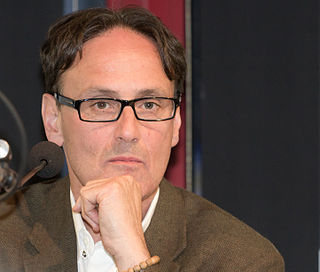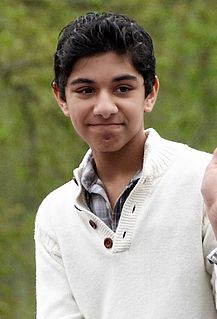A Quote by John Sayles
I certainly grew up seeing more movies and television than I read books, but when it came time to do the thing itself you don't have to hire a lot of people to sit down and write a book, so that was the story-telling medium that was available to me.
Related Quotes
I have learned that my assignment is to write books for people who do not like to read books. I really try to connect with people who are not given to spending a lot of time with an open book. Pay day to me is when somebody comes up to me and says, "I never read books but I read yours." I have a heart for that person.
You can't write a book if you've never read a book. And if you've read five books and you try to write a book, your book will mainly encompass the themes and the context of the five books you've read. Now, the more books you read, the more you can bring to a book when you decide to write one. So the more rap I learned, the more I was able to bring to rap when I decided to rap. But this was all subconscious.
I bailed out on social media for a while, and in short order I found I was able to sit down and read a book again. For the first time in a couple years I could read more than three pages without my brain wandering off into the ether. I drew a direct causal line between all this sort of ratta-tat-tat staccato stimulation that we get from the Internet and my growing inability to sit down and read anything that was longer than 500 words. But for me it came back because those synapses were already latent in my brain.
The process for writing a picture book is completely different from the process of writing a chapter book or novel. For one thing, most of my picture books rhyme. Also, when I write a picture book I'm always thinking about the role the pictures will play in the telling of the story. It can take me several months to write a picture book, but it takes me several years to write a novel.
The more I write, the more I've come to realize that books have a different place in our society than other media. Books are different from television or film because they ask you to finish the project. You have to be actively engaged to read a book. It's more like a blueprint. What it really is, is an opportunity... A book is a place where you're forced to use your imagination. I find it disappointing that you're not being asked to imagine more.
I sat on the bench by the willows and at my honey bun and read Triton. There are some awful things in the world, it’s true, but there are also some great books. When I grow up I would like to write something that someone could read sitting on a bench on a day that isn’t all that warm and they could sit reading it and totally forget where they were or what time it was so that they were more inside the book than inside their own head. I’d like to write like Delany or Heinlein or Le Guin.







































